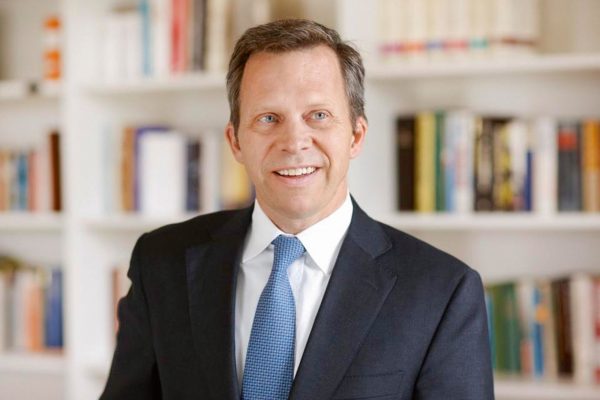Preparations for this year’s European Cocoa Forum are fast gathering pace, as Neill Barston discovered speaking to the European Cocoa Association (ECA) chairman Steven Retzlaff, president of global Cocoa at Barry Callebaut.
Major issues including sustainable production methods, tackling climate change and potential use of blockchain technology will take central stage at the European Cocoa Forum.
The event, staged in Lisbon, Portugal, between 17-19 September, has targeted reducing the industry’s carbon footprint as one of a number of key areas for debate.
During the course of its three days, the conference organised by the European Cocoa Association, will bring together players from across the European cocoa and chocolate industry.
They will be among over 240 attendees at Pestana Palace taking an active part in wide-ranging discussions on major issues facing the cocoa and chocolate sector.
Among the speakers for its four main panel sessions are Alain-Richard Donwahi, Minister of Waters and Forests of Ivory Coast, Beatriz Yordi, Director, EU Commission, DG CLIMA, Sabine Jülicher, director DG SANTE, European Commission, Leonard Mizzi, Head of Unit, DG DEVCO, European Commission, Soetanto Abdoellah, chairman, Indonesian Cocoa Board, Renat Heuberger (CEO, South Pole) and Emily Black, professor, University of Reading.
Speaking exclusively to Confectionery Production, ECA chairman Steven Retzlaff, anticipated a strong response to its main subject areas across its three days.
Having been elected to his post as ECA chairman last year, he said the organisation served a key role in supporting the development of the cocoa industry.
He said: “I am very excited about this year’s European Cocoa Forum, which will focus on many relevant future developments in the cocoa industry, ranging from sustainable cocoa production to the added value of new technologies. Being held every three years, there will be participation from industry members from across the international cocoa community, and we’ve already had over 240 people register.
“This year will include a varied programme of speakers representing the sector, governments and international organisations, so I am confident it will be a very inspirational event for all stakeholders in the cocoa supply chain.
“We will also be looking at the key challenges and opportunities which are relevant for the cocoa industry during four business panel sessions. These panels will address subjects including addressing the cocoa industry’s climate agenda, optimising the quality of cocoa, how to tackle deforestation and the worst forms of child labor and the use of new technologies, basically all the big developments over the next decade,” explained Retzlaff.
“Today, tropical agricultural production is more than ever under severe pressure on many fronts: maintaining the highest food safety standards, harnessing innovation to produce more with less land, supporting the competitiveness of the European Cocoa industry in accessing global markets, engaging with cocoa producing authorities to ensure a suitable business environment and join efforts to address climate change. Also, the industry is faced with diminishing yields and the urgency to tackle unsustainable production practices in value chains”.
“In this context, I believe the ECA is very important as an association, and it’s been very inspiring to be so closely involved in its work,” added Retzlaff.
He anticipated the main panel sessions would prompt some intriguing debate, as a range of critical issues for the cocoa industry come under the microscope.
“If we look at some of the key trends that are happening in the market, it’s fair to say consumers are better connected to our industry than ever before.
“They want to know more and more about the food that they are eating, so clean label has become very important. There is also strong growth within vegan and organic product ranges, as well the matter of transparency in production”.
“In terms of wider challenges that are being faced by the industry at the moment, another is that of the EU regulatory environment becoming more complex, as new priority areas have been identified such as carbon footprint, circular economy, and food waste to name a few. Trade patterns are also changing rapidly, and we call for an ambitious European industrial strategy to help us compete with other global regions that have already put industry at the heart of their political agenda.
- Major Ghana Cocoa Region 81% Infected with Bean Disease - July 22, 2024
- Ghana to Delay More Cocoa Deliveries as Supply Crisis Worsens - June 12, 2024
- Cocoa Production Helping Mitigate Climate Change Impact - June 10, 2024
